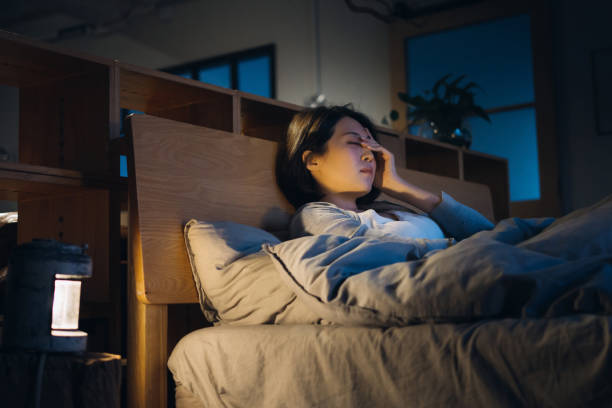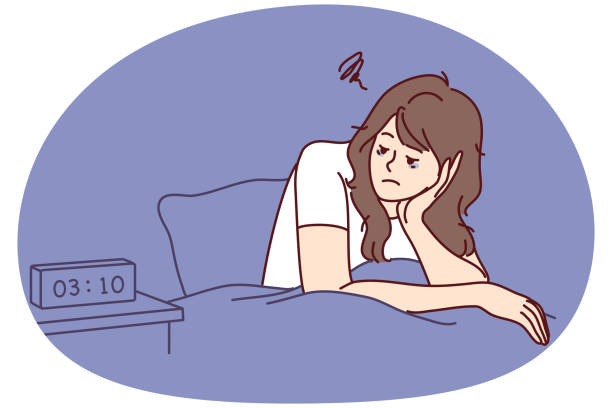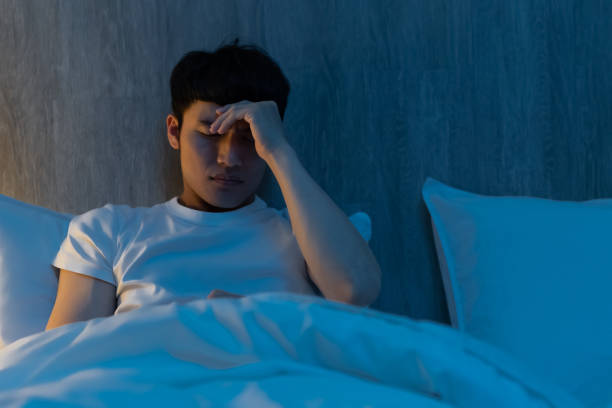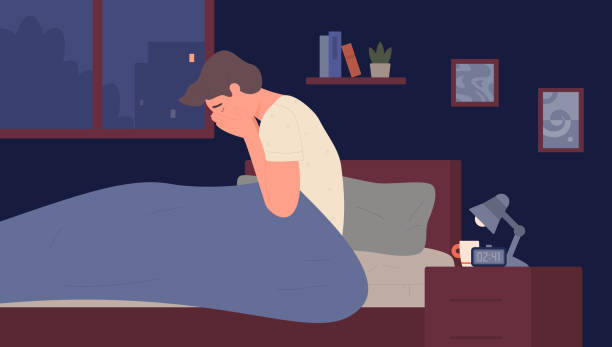We all know that getting a good night’s sleep is essential for overall health. But did you know that sleep deprivation can also have a significant impact on your vision? Whether you’re a busy professional, a student, or an athlete, lack of sleep can affect your eyes in various ways. In this blog post, we’ll explore the connection between sleep and vision, how sleep deprivation can harm your eyes, and the importance of maintaining a healthy sleep routine.
The Connection Between Sleep and Eye Health
Your eyes are connected to your brain, which relies on sleep to maintain proper functioning. During deep sleep, your brain processes and restores information, helping your body and mind to recharge. If you don’t get enough rest, your brain can’t fully repair itself, which may lead to various health problems—including issues with your vision.

How Lack of Sleep Affects Your Eyes
Here are several ways that sleep deprivation can directly impact your eye health:
1. Increased Eye Strain
When you don’t sleep enough, your eyes become more fatigued and strained. This is because your eyes have to work harder to focus, leading to discomfort. You may notice that your eyes feel tired, sore, or even dry. In some cases, this eye strain can lead to headaches, which are commonly associated with vision problems.
2. Dry Eyes and Irritation
Lack of sleep can affect your body’s ability to produce tears. As a result, your eyes may become dry, irritated, and uncomfortable. This condition is known as dry eye syndrome, and it can worsen if you continue to neglect your sleep. Dry eyes can make it harder to focus and can even cause blurred vision in some cases.
3. Blurred Vision
Sleep deprivation can lead to temporary blurred vision. This happens because your eyes don’t have enough time to rest and recover, which affects their ability to focus properly. You might experience difficulty seeing clearly, especially when reading, working on a computer, or driving.
4. Eye Twitching
Have you ever experienced a twitching sensation around your eyes? This is a common symptom of sleep deprivation. When you don’t get enough sleep, your muscles—including those around your eyes—can become fatigued and overstimulated, leading to involuntary eye twitching.
5. Increased Sensitivity to Light
Sleep deprivation can make your eyes more sensitive to light, a condition known as photophobia. This means that bright lights may cause discomfort or pain in your eyes. If you already have other eye issues, such as dry eyes or eye strain, the sensitivity can worsen.
6. Worsening of Pre-Existing Vision Problems
If you already have vision problems, such as nearsightedness (myopia) or farsightedness (hyperopia), sleep deprivation can make these conditions feel worse. When your eyes don’t get the rest they need, it becomes more difficult to focus, and your vision may seem blurry or distorted.

The Long-Term Effects of Chronic Sleep Deprivation on Vision
While the occasional sleepless night may lead to temporary vision problems, chronic sleep deprivation can have more serious long-term effects on your eye health. Prolonged lack of sleep can contribute to several eye-related issues, including:
1. Increased Risk of Glaucoma
Glaucoma is a group of eye diseases that can damage the optic nerve, potentially leading to vision loss. Studies have shown that sleep deprivation may increase the risk of developing glaucoma because it can lead to higher eye pressure. The longer you go without sufficient sleep, the greater the risk of eye problems like glaucoma.
2. Potential for Macular Degeneration
Macular degeneration is a leading cause of vision loss in older adults. Lack of sleep has been linked to an increased risk of developing age-related macular degeneration (AMD). Inadequate rest affects the retina, which can contribute to the development of this condition over time.
3. Exacerbation of Dry Eye Syndrome
Chronic sleep deprivation can worsen dry eye syndrome, a condition where the eyes don’t produce enough tears to stay moist. This can result in persistent irritation, blurry vision, and a higher risk of eye infections. If left untreated, dry eye syndrome can lead to more severe vision problems in the future.

The Importance of Quality Sleep for Eye Health
Now that we understand how sleep deprivation affects your vision, let’s talk about the importance of quality sleep for your eyes.
1. Eye Repair During Sleep
When you sleep, your body works to repair itself. The cells in your eyes regenerate, and your tear ducts produce the moisture your eyes need to stay healthy. This process is essential for maintaining good vision. A solid sleep routine gives your eyes the time they need to recover from daily wear and tear.
Adequate sleep reduces the likelihood of experiencing eye fatigue. When you get a good night’s sleep, your eyes have a chance to rest and recharge, making it easier to focus throughout the day. This is especially important if you spend a lot of time reading, using a computer, or doing other tasks that require focused vision.
3. Balanced Tear Production
Your eyes rely on tear production to stay moist and free from irritation. Sleep is crucial for balancing this process, as your body produces more tears during deep sleep. Without proper sleep, tear production may decrease, leading to dry eyes and discomfort.
Tips for Improving Sleep and Protecting Your Vision
If you’re struggling with sleep deprivation and its impact on your vision, here are some tips to improve your sleep habits and protect your eye health:
1. Stick to a Consistent Sleep Schedule
Try to go to bed and wake up at the same time every day. Consistency helps regulate your body’s internal clock, making it easier to fall asleep and wake up feeling refreshed.
2. Create a Sleep-Friendly Environment
Make your bedroom a quiet, dark, and cool place to sleep. Avoid using electronic devices, such as smartphones and laptops, before bedtime, as the blue light emitted by screens can interfere with your sleep cycle.
3. Limit Caffeine and Alcohol
Avoid drinking caffeinated or alcoholic beverages close to bedtime, as they can disrupt your sleep patterns. Opt for herbal teas or warm milk to help you relax before bed.
4. Practice Relaxation Techniques
Stress can also interfere with sleep. Consider practicing relaxation techniques, such as deep breathing, meditation, or gentle stretching, to help calm your mind and body before bedtime.
5. Stay Hydrated
Dehydration can contribute to dry eyes and irritation. Be sure to drink plenty of water throughout the day to keep your eyes and body properly hydrated.
Conclusion
Sleep deprivation is not only bad for your overall health, but it can also have a significant impact on your vision. From eye strain and dryness to more serious conditions like glaucoma and macular degeneration, lack of sleep can lead to a variety of eye problems. By understanding the connection between sleep and eye health, you can take steps to improve your sleep habits and protect your vision. Remember, a good night’s sleep is just as important for your eyes as it is for the rest of your body. Prioritize your sleep and make it a vital part of your daily routine to ensure that your vision remains clear, healthy, and strong.

